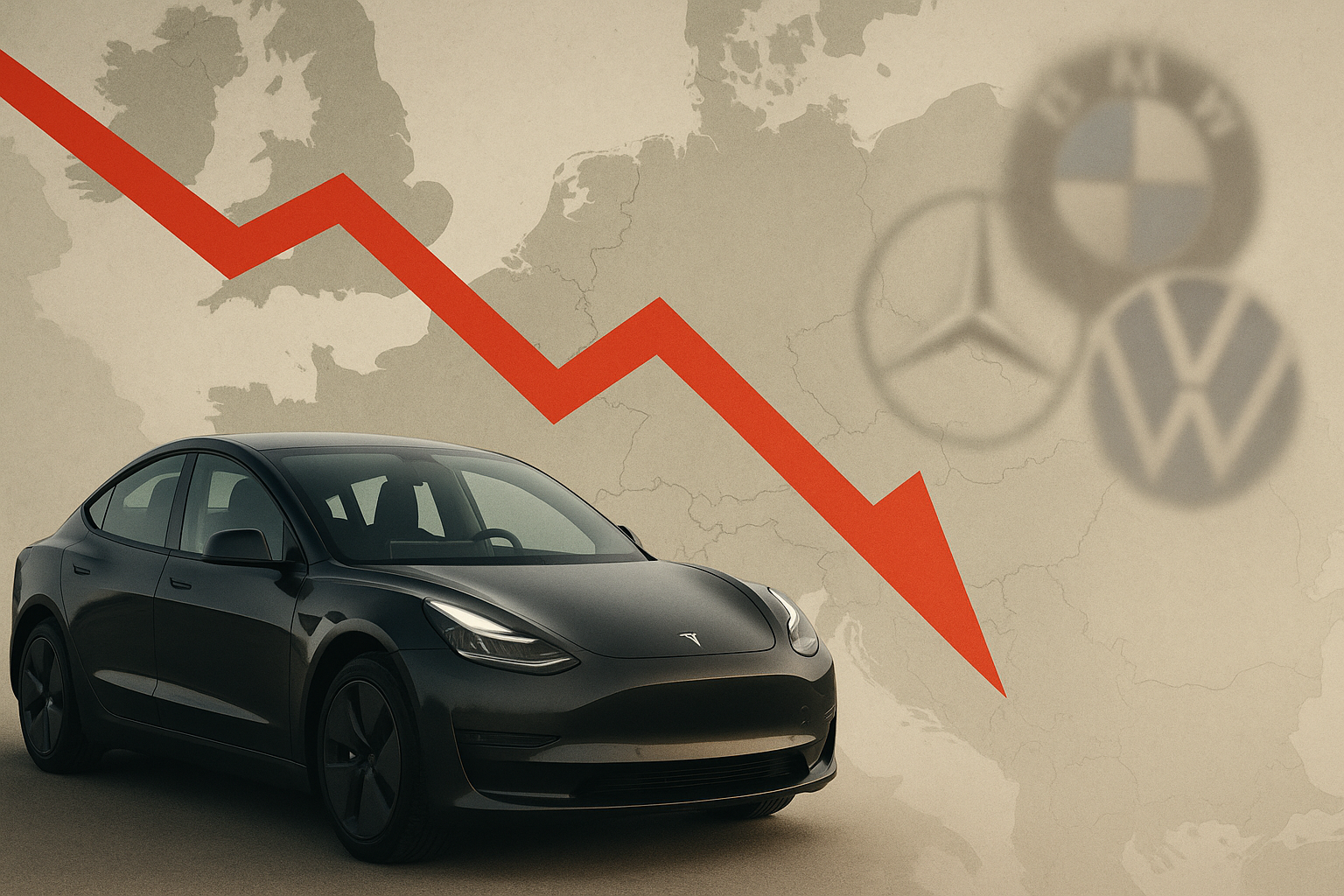Tesla's stock took another beating today. The culprit? A persistent European sales slide that's now stretched to five consecutive months—not exactly the kind of streak Elon Musk tends to celebrate on Twitter... er, X.
What makes this particularly troubling is that Europe's broader EV market continues to grow. Tesla isn't just failing to keep pace—it's actively losing ground in what has been (until recently) one of its most promising territories.
The timing couldn't be worse. Wells Fargo just warned investors to brace for potentially disappointing Q2 delivery numbers, and the market—which has never been accused of patience when it comes to pricing in bad news—is already voting with sell orders.
I've been tracking Tesla's European performance since 2020, and this pattern feels different. Previous dips typically coincided with production constraints or shipping bottlenecks. This one has the distinct aroma of a demand problem.
Look, Tesla has always occupied this weird space in the investment universe—it's valued like a tech company but ultimately makes its money selling cars. When the car-selling part hits a rough patch, that tech multiple starts to look awfully precarious.
European consumers are a different breed. Having lived in Germany for three years covering the auto industry, I can tell you they tend to favor understated luxury and established brands. They're less susceptible to the Musk magic that's worked so well in the US market.
And now they have choices—lots of them.
BMW, Mercedes, Volkswagen, Polestar... the list of compelling European EV options grows monthly. Remember when Tesla was the only game in town? Those days are as gone as the $7,500 federal tax credit (for most Tesla models, anyway).
Meanwhile, over in China, BYD is pulling back on production. This raises an interesting question: is Tesla facing a company-specific problem or a broader EV demand issue?
Probably both.
The reality is that the early adopter wave has largely crested. Now comes the harder part—convincing mainstream buyers to make the switch to electric. These customers are more price-sensitive, less forgiving of quirks, and certainly less likely to overlook quality issues because they're smitten with a charismatic CEO.
(Speaking of that CEO, his increasing political outspokenness probably isn't helping matters in predominantly progressive European markets.)
Tesla has always defied conventional analysis. It's simultaneously a car manufacturer, energy company, tech platform, and—let's be honest—a cult of personality. This makes valuing it using traditional metrics about as straightforward as interpreting one of Musk's cryptic tweets.
But even Elon's famous reality distortion field has its limits. Five straight months of European declines is testing those boundaries.
For long-term Tesla bulls, this is probably just another bump in what has always been a rollercoaster ride. The company has faced existential threats before and emerged stronger. But for investors with shorter time horizons or weaker stomachs? Some portfolio rotation ahead of Q2 numbers might be prudent risk management.
The company that once seemed to defy automotive gravity is discovering what traditional automakers have known for decades—this business is cyclical, competitive, and eventually constrained by market realities.
As an investor once told me after a particularly volatile Tesla earnings call: "The future always arrives, just not on Elon Time."
Truer words were never spoken.




